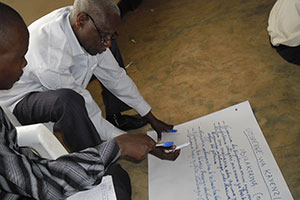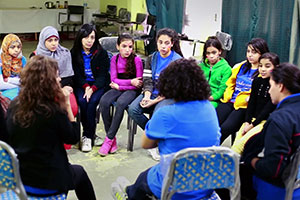Violence against women
According to a 2013 global review of available data, 35 per cent of women worldwide have experienced either physical and/or sexual intimate partner violence or non-partner sexual violence. However, some national violence studies show that up to 70 per cent of women have experienced physical and/or sexual violence in their lifetime from an intimate partner.
In order to address violence against women effectively, a comprehensive approach is needed involving a wide range of actors. It must cover the development of laws and policies, prevention and support services, change norms and behaviour of men boys, as well as include data collection and research. Awareness-raising and campaigns on the extent and impact of violence are an important component of prevention efforts, but they need to be complemented with educational programmes and community mobilization in order to have sustained results.
Ending violence against women is one of UN Women’s key priorities, with a range of programmes to address the pandemic globally. UN Women supports expanding access to quality multi-sectorial responses for survivors covering safety, shelter, health, justice and other essential services. We advocate for laws and help guide policies and action plans to help step-up investments in prevention—the most cost-effective, long-term means to stop violence against women by addressing its root causes.
In Rwanda, men work to change attitudes and confront gender-based violence
UN Women is working with the Rwanda Men’s Resource Centre to reduce violence against women in households in a country where 48 per cent of women between the ages of 15-49 experience gender-based violence. The men’s cooperative holds training sessions, where positive notions of masculinity and femininity are encouraged and cultural norms that affect gender equality are addressed. The cooperative has trained 3,000 local leaders from all levels of government on women’s human rights and gender-based violence.
Games and children, a new direction to ending sexual violence
“Nobody has the right to touch our body! No one!,” sing a group of young children animatedly during an innovative training session that uses music and games to help young girls and boys learn to recognize abuse and say no to sexual harassment in their communities. In Cairo, this pilot project is part of a comprehensive Safe City Programme which began in 2011 to prevent and respond to sexual violence in urban spaces, supported by UN Women and local partners.
What the Beijing Declaration says about Violence against women
Read our Beijing+20 In Focus package on Violence against women
Go back to UN Women's In Focus compilation on Ending Violence against Women 2014

